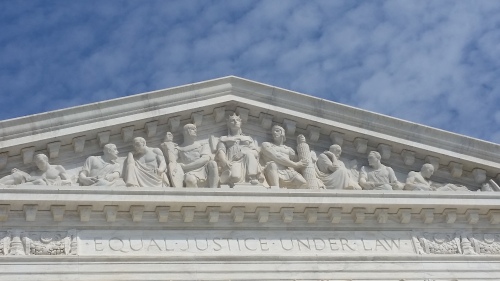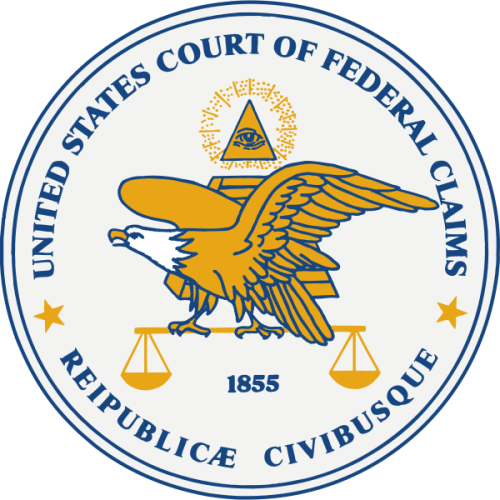
Judge Cliff Corker (no relation to Sen. Bob Corker) is Trump’s first nominee to the federal court that covers much of Eastern Tennessee. While Corker is an experienced judge and advocate, some intemperate writings from his college years may cause him some heartburn.
Background
Clifton Leland Corker was born in Richmond, VA in 1967. He graduated from James Madison University in 1990 and then attended William & Mary Law School, graduating in 1993.[1] Corker then clerked for Judge Cynthia Kinser, then a magistrate on the U.S. District Court for the Western District of Virginia.[2]
After his clerkship, Corker worked as a volunteer for the Public Defender in Greenville, Tennessee for a year and then as an Associate at Terry, Terry & Stapleton briefly before opening his own law practice in Johnson City.[3] Corker stayed at the practice until he became a U.S. Magistrate Judge for the Eastern District of Tennessee in 2015, where he serves today.[4]
History of the Seat
Corker has been nominated to fill a seat on the U.S. District Court for the Eastern District of Tennessee. This seat opened on June 30, 2018, when Judge J. Ronnie Greer moved to senior status. In June 2018, Corker was interviewed for the vacancy by the White House and was nominated on October 10, 2018.[5]
Legal Career
Corker started his legal career by clerking on the U.S. District Court for the Western District of Virginia. He then worked as a Public Defender and at a small litigation practice. Overall, Corker tried approximately 25 jury trials before joining the bench.[6]
From 1996 to 2005, Corker handled litigation matters in Johnson City, including the representation of indigent defendants on a court-appointed basis.[7] During this time, he represented Gary Moore, an indigent defendant charged with conspiracy to distribute crack cocaine.[8] Corker was able to successfully get the evidence of the crack cocaine suppressed by arguing that the officers lacked probable cause for a search incident to arrest.[9] Similarly, Corker was able to get a search warrant issued by an associate municipal judge in Johnson City overturned, forcing a ruling that municipal judges had no authority to issue search warrants.[10]
However, Corker was less successful in arguing before the Tennessee Supreme Court that the Tennessee Constitution provides broader protections for defendants seeking access to counsel than the U.S. Constitution.[11]
Political Activity
Corker has a modest political history working for Republican candidates. He volunteered for George H.W. Bush as a college student and has supported Tennessee Republicans more recently.[12] Corker also contributed to the Presidential campaign of Mike Huckabee in 2008.[13]
Jurisprudence and Reversals
Corker has served as a U.S. Magistrate Judge since his appointment in 2015. In his three years on the bench, Corker has presided over 149 cases where parties have consented to his jurisdiction, a remarkably high number.[14]
Over his three years on the bench, Corker has only had his reports and recommendations rejected twice. In the first, Judge Greer rejected Corker’s recommendation that an ALJ’s denial of social security benefits be affirmed.[15] In the second, Judge Pamela Reeves rejected Corker’s ruling that the criminal statute defendant was charged upon was not unconstitutionally vague.[16]
Writings
As a college student, Corker frequently wrote articles and letters to the editor for The Breeze, the JMU college paper. In these writings, Corker takes strongly conservative positions, frequently employing hyperbolic language to lampoon the perceived weaknesses of ideological opponents. For example, in one piece, Corker writes that the “evil spirit of liberalism is beginning to ooze out of the hearts and minds of those it holds captive, seeking to add more to its chains of slavery.”[17] In another piece, Corker defends Col. Oliver North as “the victim of a prosecutor with an unlimited budget” and describes the U.S. Congress as the “enemy” for investigating North and interfering with the Reagan Administration’s foreign policy.[18] In another column announcing a debate over the Reagan Administration’s Strategic Defense Initiative (SDI), Corker takes the first paragraph to dismiss the designation of Nov. 9-16 as Nuclear Awareness Week and Gay Rights Week, noting:
“This leads me to question as to whether it is the gays who want more nuclear awareness or the nuclear awareness persons who want more gay rights?”[19]
In other articles, Corker praises the Supreme Court candidacy of Robert Bork, arguing that “[w]omen’s rights will not suffer at all” by recognizing that, unlike with race, there are “reasonable differences between genders,”[20] and criticizes the push for divestment from South Africa due to apartheid, arguing that current sanctions “are neither helping blacks nor aiding in the abolishment of apartheid.”[21]
Overall Assessment
Is Corker a consensus nominee? If we look at Corker’s record starting with his time in law school, the answer would unquestionably be “yes.” His record as a judge is truly impressive with a very low rate of reversal. Additionally, his background working to expand the rights of criminal defendants is fairly unique among federal judicial nominees, among whom prosecutors tend to be more common.
However, when you bring in Corker’s college writings, in which he calls liberals “evil”, suggests that opponents of Reagan are un-American, and mocks the designation of “Gay Rights Week” they paint a different picture. To be fair, individuals change and grow throughout their lives, and it is likely that Corker is a different person today than when he wrote those statements. As such, it remains to be seen how relevant senators find his college writings when contrasted with the rest of his record. It is also important to see if Corker is willing to distance himself from these writings (at least in tone if not in substance).
[1] Sen. Comm. on the Judiciary, 114th Cong., Clifton L. Corker: Questionnaire for Judicial Nominees 1.
[2] Kinser would later serve on the Virginia Supreme Court.
[3] Id. at 2.
[4] Id.
[5] See id. at 51.
[6] Id. at 42.
[7] Id. at 40-41.
[8] See United States v. Brown, 390 F. App’x 503 (6th Cir. 2010).
[9] See id.
[10] United States v. Hall, No. 2:01-cr-0027-1 (E.D. Tenn. Aug. 6, 2001).
[11] See State v. Saylor, 117 S.W.3d 239 (Tenn. 2003).
[12] See Corker, supra n.1 at 39.
[13] Center for Responsive Politics, https://www.opensecrets.org/donor-lookup/results?name=clifton+corker&cycle=&state=TN&zip=&employ=&cand= (last visited Nov. 28, 2018).
[14] See Corker, supra n.1 at 18.
[15] McMillan v. Colvin, Comm’r of Social Security, No. 2:15-cv-167 (E.D. Tenn. Aug. 30, 2016).
[16] See United States v. Lopez, No. 2:17-cr-62 (E.D. Tenn. Dec. 12, 2017).
[17] See Letter to the Editor, Evil Liberal Spirit Returns, The Breeze, Mar. 24, 1988, at 35, available at https://commons.lib.jmu.edu/cgi/viewcontent.cgi?article=1481&context=i19801989.
[18] Letter to the Editor, Anti-North Groups Really Resent ‘Success of Reagan Revolution’, The Breeze, Jan. 30, 1989, at 12, available at https://commons.lib.jmu.edu/cgi/viewcontent.cgi?article=1528&context=i19801989.
[19] Letter to the Editor, National Defense Debated: Two Sides to Arms Build-Up Discussed By High-Ranking Officers, The Breeze, Nov. 12, 1987, at 21, available at https://commons.lib.jmu.edu/cgi/viewcontent.cgi?article=1457&context=i19801989.
[20] Letter to the Editor, Bork Views Based on Sound Judgment, The Breeze, Oct. 8, 1987, at 27, available at https://commons.lib.jmu.edu/cgi/viewcontent.cgi?article=1448&context=i19801989.
[21] Clifton Corker, End Apartheid: Invest in South Africa, The Breeze, Feb. 23, 1989, at 10, available at https://commons.lib.jmu.edu/cgi/viewcontent.cgi?article=1535&context=i19801989.







